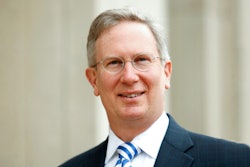Harvard University’s Faculty of Arts and Sciences voted yesterday to give the university a worldwide license to publish their work online at no cost to the reader. The university will feature faculty’s scholarly articles in an open-access repository supported and maintained by the university.
Instead of signing exclusive agreements with scholarly journals that often have small readerships and high subscription costs, faculty members can now present their findings and research to a global audience.
The outcome of the vote only applies to Harvard’s arts and sciences faculty for now, however the benefits of open-access publishing may spur faculty in other schools to take similar measures.
In proposing the legislation, Dr. Stuart M. Shieber, the Virginia B. Welch Professor of Computer Science and director of the Center for Research on Computation and Society, said, “There is no question that scholarly journals have historically allowed scholars to distribute their research to audiences around the world. But, the scholarly publishing system has become far more restrictive than it need be. Many publishers will not even allow scholars to use and distribute their own work. And, the cost of journals has risen to such astronomical levels that many institutions and individuals have cancelled subscriptions.”
While the copyrights of the articles will be maintained through Harvard’s license, faculty members will be able to request a waiver of the license for particular articles. The new legislation does not apply to articles completed before its adoption.
“All of us face the same problems and all of us can envision the public benefits of open-access. Harvard Medical School is already working with its faculty to comply with a congressional mandate that articles based on funding from the National Institutes of Health be openly accessible through PubMed Central,” said Dr. Robert Darnton, the Carl H. Pforzheimer University Professor and director of the University Library.
“By working as individual faculties and together as a single university, we can all promote the free communication of knowledge,” he said.
–Michelle J. Nealy
There are currently 0 comments on this story.
Click here to post a comment
© Copyright 2005 by DiverseEducation.com


















